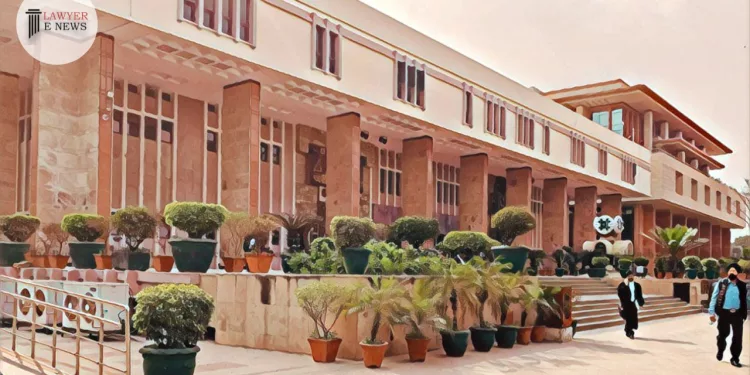Delhi High Court Upholds Financial Hardship as a Valid Defense in Contempt of Court

The Delhi High Court, in a landmark decision, has highlighted the significance of financial difficulties as a defense in legal disputes concerning lease agreements. In the case of M/S Drishti Software Pvt Ltd vs. M/S Valaya Clothing Pvt Ltd & Ors., the court dismissed a contempt petition, setting a precedent for the consideration of financial constraints in legal compliance.
Justice Dharmesh Sharma, presiding over the case, underscored the importance of evaluating financial hardships while deciding on cases of alleged contempt of court. The judgment focused on the inability of the respondent company, M/S Valaya Clothing Pvt Ltd, to comply with the terms of a settlement agreement due to their precarious financial position.
The case revolved around a lease agreement where the respondent company continued to occupy the premises after the expiry of the original lease, leading to a dispute over unpaid rent. The parties had reached a settlement agreement, which the petitioner company argued was violated by the respondent.
In his insightful analysis, Justice Sharma referred to several legal provisions and precedents, including the Contempt of Courts Act, 1971, and the Insolvency and Bankruptcy Code, 2016. He noted, “The nonperformance of the undertaking to pay the outstanding amount in terms of the MOU, is not an outcome without justifiable excuse,” emphasizing the impact of the respondent’s financial crisis and subsequent corporate insolvency resolution process.
The court’s decision reflects a balanced approach In interpreting the law, considering the real-world challenges faced by entities in fulfilling legal obligations. This judgment is particularly significant as it clarifies the scope of ‘wilful disobedience’ in the context of civil contempt, taking into account the financial distress of the parties involved.
The legal fraternity views this judgment as a crucial development in civil law, especially in the context of lease agreements and settlement compliance. It underscores the judiciary’s role in ensuring that legal interpretations align with practical realities, especially in situations where financial constraints impede the ability to comply with court orders.
Representatives from both sides, Mr. Kundan Kumar Mishra for the petitioner and Mr. Rajnish Kumar Gaind, Mr. Hemant Kaushik, and Mr. Amritesh Krishna for the respondents, presented their arguments, culminating in this notable judgment.
This ruling by the Delhi High Court serves as a guiding principle for future cases, emphasizing the need for courts to consider financial hardships as a legitimate factor in determining compliance with legal agreements and court orders.
Date of Decision: 17 November 2023
M/S DRISHTI SOFTWARE PVT LTD VS M/S VALAYA CLOTHING PVT LTD & ORS.






